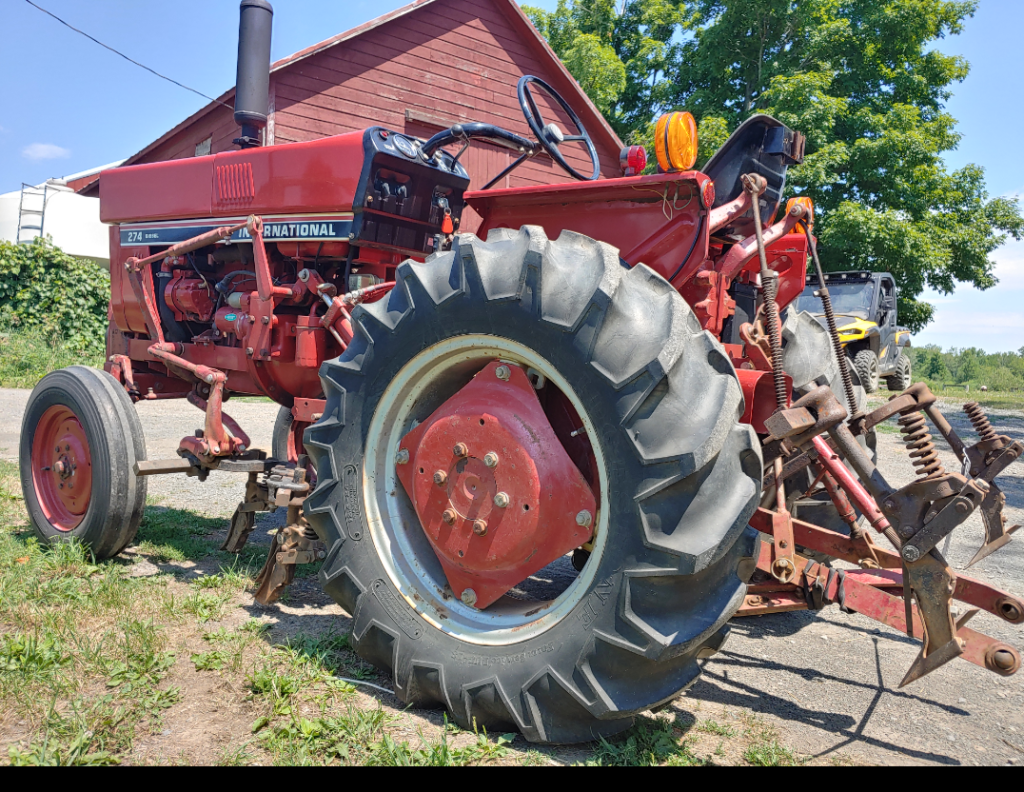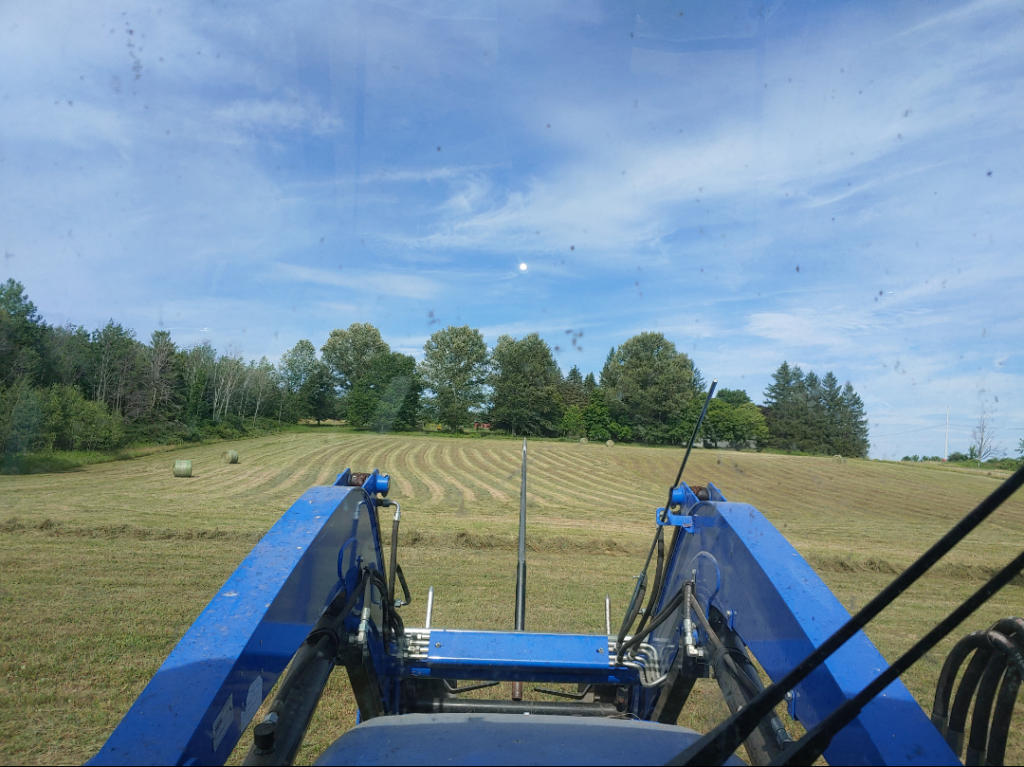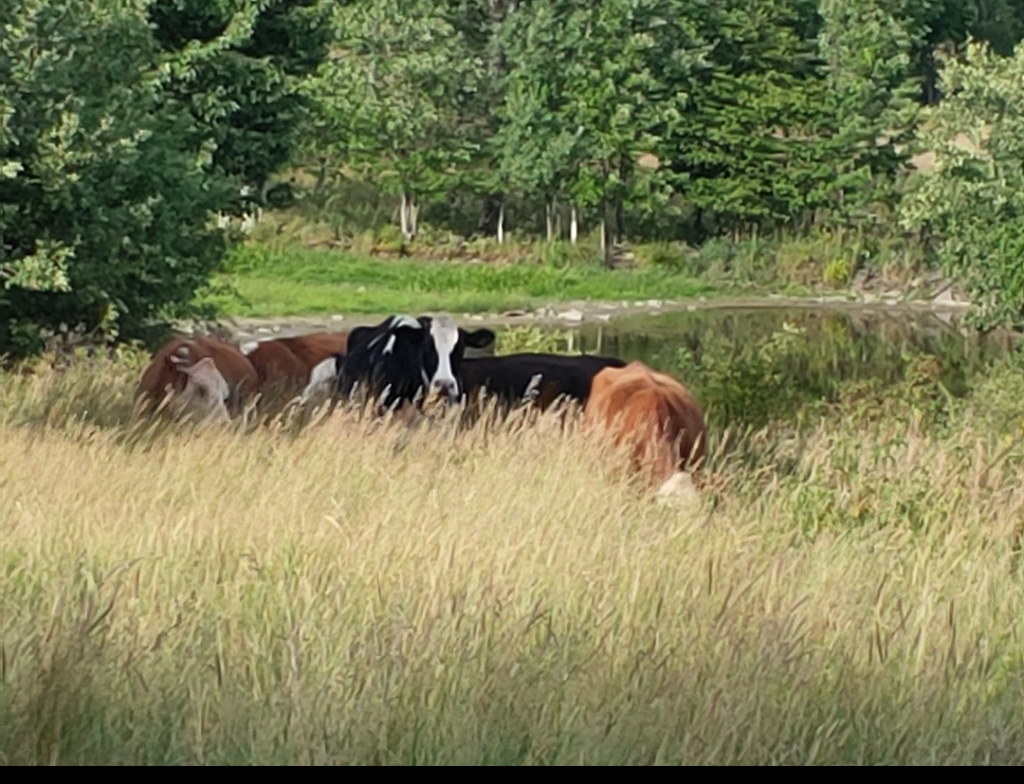Produce from the farm this week includes: scallions, lemon basil, yellow squash, zucchini, summercrisp lettuce, red leaf lettuce, and Swiss chard
Lemon Basil Vinaigrette
1 bunch lemon basil leaves
2 cloves garlic
4 Tbsp parmesan cheese
1 1/2 Tbsp Dijon mustard
1 Tbsp lemon juice
1/2 cup olive oil
Sea salt and freshly groumd pepper to taste
Wizz all ingredients in a blender. Chill at least 1 hour before serving

Swiss Chard Frittata
1 bunch Swiss chard
Scallions
Olive oil
Sea salt and freshly ground pepper
EMCF eggs
4 new potatoes
Heat olive oil in large skillet over medium heat. Slice stems of chard and saute in oil for 4 minutes. Slice potatoes into small cubes and add to skillet. Saute until tender. Add chopped chard leaves, salt and pepper and stir to coat with oil. Place lid on pan, turn heat to low, and cook, stirring frequently, 4 minutes, until tender. Transfer chard to platter and keep warm. Heat more olive oil in the pan over medium heat. Scramble 6 eggs and add to pan. Turn heat to medium low and move pan a bit from side to side, lifting edges of eggs to allow them to firm up and cook through. Add cooked chard and spread gently over eggs. Place a large plate over pan and carefully flip pan upside down onto plate, allowing chard and eggs to come out onto plate in one piece. Heat a bit more olive oil in pan and add another 6 beaten eggs. Cook and firm them up. Slide chard and eggs off of plate onto firmed eggs in pan. Heat through. Place plate over pan again and carefully turn pan upside down onto plate. Cool 5 minutes then adjust seasonings, slice into wedges and serve.
Variation: add cooked angel hair pasta with chard when spreading chard over the first egg layer, to give you a filling of angel hair and chard.
Next week…..the first of the tomatoes!
Despite all of our accomplishments, we owe our very existence to six inches of top soil and the fact that it rains.
author unknown
During these exceedingly dry spells, the soil organic matter that our livestock have helped us build through the years by applications of compost, do help keep the vegetables growing and help keep the hay fields and pastures alive. The long dry spell that we have had since the end of May, however, does start to stress the productivity. Growth can be inhibited, hay yields reduced and pasture regrowth limited. We are hoping for some more balanced weather in the months to come!



Nice tractor! Is it replacing one of your others? Can’t wait for the tomatoes!